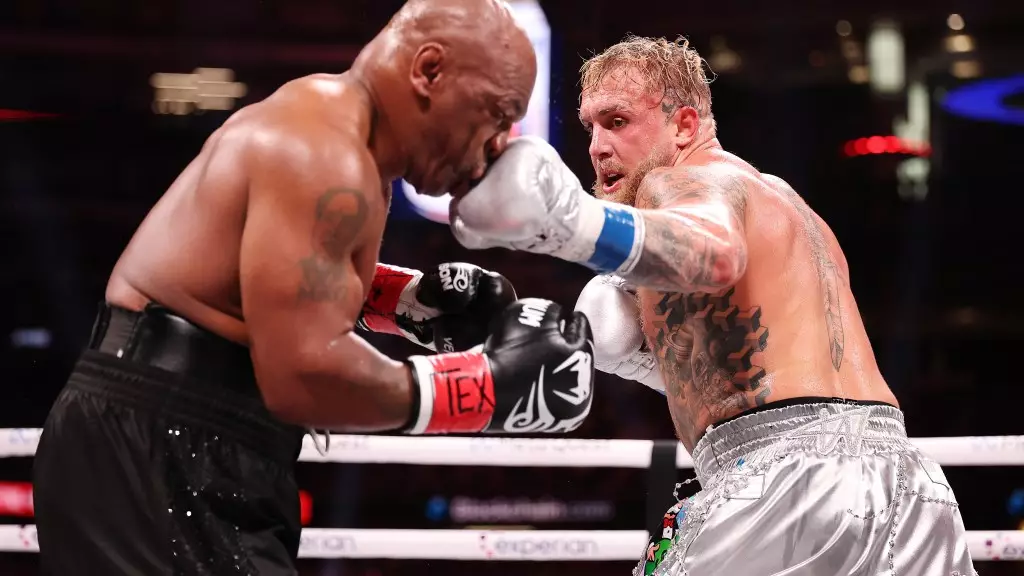The world of boxing has been known for its brutal matches and intense rivalries, but the recent bout between Mike Tyson and Jake Paul cast a different light on the sport. Francis Ngannou, a rising star in the combat sports realm, found himself in a unique position while watching his friend, the legendary Tyson, step into the ring against the social media influencer and boxer Paul. It was an emotional experience for Ngannou as he grappled with the sight of a once-mighty fighter who had achieved greatness, now facing challenges against a younger opponent.
Despite the waning prowess of age, Tyson demonstrated an admirable ability to withstand pressure, evading serious shots and enduring throughout the match. However, Ngannou’s affinity for Tyson created an emotional dissonance; he watched his friend battle through the opposition while mourning the loss of the fierceness and intensity that once defined Tyson’s career. Ngannou articulated this sentiment vividly, expressing, “It just hurt me to see Mike there in that situation.” This subliminal pain transcended mere sports rivalry, encapsulating the fragility of human legacy.
The Evolution of Boxing’s Duels
In the world of boxing, matchups have evolved. Tyson’s fight against Paul represents a convergence of traditional combat sports with the modern age’s celebrity culture. While Ngannou acknowledged that Paul may not have posed a significant threat to Tyson, his presence in the ring indicated a shift in how fans and fighters perceive competitions today. The dynamic of a YouTube star challenging a boxing icon raises questions about respect and integrity in sports. For Ngannou, this juxtaposition was troubling, demonstrating the growing divide between combat sport purists and newer audience segments seeking entertainment rather than authentic competition.
Praise Amidst Concern
Despite his concerns, Ngannou also commended Tyson’s resilience as he stood up against a 27-year-old adversary. Tyson’s endurance, even at 58 years old and having started boxing at the tender age of 12, speaks volumes about his inherent talent and dedication to the sport. Ngannou stated, “To still be able to stand up on his own at this age, I think it’s impressive.” These words encapsulate the reverence Ngannou holds for Tyson, portraying a glimpse of admiration mingled with personal grief over witnessing an icon’s battle against time.
As the landscape of boxing continues to change, the implications of such matches extend beyond individual performances. They raise crucial questions about the direction of combat sports, the role of legacy, and how younger generations perceive their predecessors. Ngannou’s reaction serves as a reminder that while the sport evolves, the emotional ties and historical significance of figures like Tyson are irreplaceable. As fans, fighters, and analysts, it is imperative to navigate these changes thoughtfully, recognizing the importance of legacy while embracing the sport’s future.

